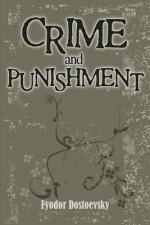|
This section contains 216 words (approx. 1 page at 400 words per page) |

|
1860s: Russia's government is a monarchy, with a head of state called the "tsar." But even at the time of Crime and Punishment's publication, changes in government were beginning to be seen with Tsar Alexander II's introduction of reforms in the Russian military, the law courts, and local government.
Today: The Russian Revolution of 1917, which led to decades of oppressive rule under a communist government, has given way to a struggling democracy after the collapse of the Soviet Union in 1989. President Boris Yeltsin has since introduced economic reforms, though his country's economy is still unstable.
1860s: The Russian novelists Dostoyevsky and Ivan Turgenev spend much of their time travelling abroad. Dostoyevsky eventually returns to Russia, but Turgenev decides to remain an expatriate.
Today: Russian author Alexander Solzhenitsyn, exiled from Russia in the early 1970s because of his opposition to the communist government, has returned...
|
This section contains 216 words (approx. 1 page at 400 words per page) |

|




